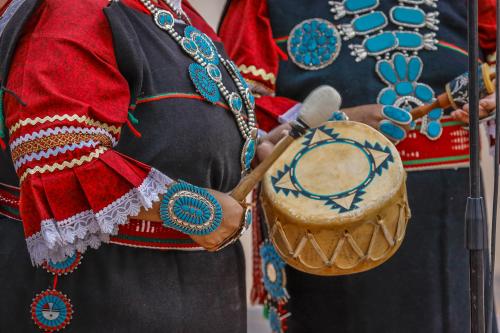On October 7, 19 million Venezuelans will vote on whether Hugo Chávez should have a further term after 13 years in power, or whether the opposition candidate, Henrique Capriles Radonski, the 40-year-old former governor of Miranda state and former vice president of the lower house, should become president. No other posts are up for election on Sunday. Consequently, this vote becomes a referendum on Chávez’s leadership.
The latest polling has narrowed the gap between Chávez and Capriles. Datanalysis gives Chávez a 10 point lead. As of mid-September, Consultores 21 gives Capriles a two point lead. Other polls continue to put Chávez ahead, but all pollsters share the proportion of undecided voters at approximately 14%. Most of the undecided should be classified as “unwilling to declare” for fear of losing government benefits or a job. The outcome lies with these people, who could provide Capriles with the majority. Only Chávez believes that a clear victory will be his. Most analysts predict a close outcome.
A narrow win by either side risks the loser provoking disturbance. Until September 29, the campaign had been noisy with frequent gunshots, but no deaths. On that day, two of Capriles’s staff and one spectator were shot and died during a rally some 240 kilometers from Caracas. Chávez condemned the violence stating that “It’s not with violence that we are going to face each other. It’s vote against vote.” However, intimidation against Capriles followers is widespread and rumors of mobilization by the Chávez’ militias are current. Restraint is needed in the final days leading up the election.
Conscious that Chávez could declare un estado de excepción (state of emergency) and suspend most civil liberties should disturbances “gravely affect the security of the Nation,” Capriles has called on his followers to exercise restraint. A state of emergency could last up to 90 days, with a further 90-day extension that would prevent Capriles, should he win, from taking the oath of office in mid-January. Restraint may be difficult to sustain when the young, 250,000-strong militia are let loose to celebrate or challenge the outcome.
What role should the U.S. government play? The policy of not saying anything about Chávez in order to reduce the bulls-eye for Chavista anti-imperial rhetoric could continue through the election. However, that would indicate that unfair elections in the hemisphere are acceptable to Washington, or in the alternative that the Obama administration does not care about the Venezuelan election. Secretary Clinton was articulate in support of a democratic outcome to the Honduran political crisis in 2009 and advocated respect for the outcome of the Salvadoran presidential election that same year. The U.S. government should not limit its pronouncement to small countries. Instead, our democratic principles should be advocated broadly. Liberal democracy is built upon free and fair elections, a free press and the rule of law. We should publicly affirm our principles and ask that the Venezuelans be allowed to exercise their civil rights in a peaceful environment, free of intimidation. José Miguel Insulza, the Secretary General of the Organization of American States (OAS) could do the same based upon the principles of the OAS Charter.
A peaceful election is necessary for the Venezuelan people mired in homicide rates that are among the highest in the world. Also, citizens need a peaceful mechanism to resolve their intense political disputes. But this vote is not unique. Despite the fact that it has become a referendum on Hugo Chávez, it forms part of several elections to determine how Venezuelans wish to be governed. Since Chávez was first elected president in 1998, Venezuelans have voted for president four times, national legislature five times, regional elections five times and referendums four times. It took multiple elections to consolidate the dominance of President Chávez and his party, the Partido Socialista Unido de Venezuela (PSUV).
Nevertheless, beginning in 2010 the opposition unified in the Mesa de la Unidad Democrática (MUD), which was modeled after the Chilean efforts to defeat Pinochet’s dictatorship. They coalesced around a single candidate and succeeded in denying Chávez’s party a two-third majority in the National Assembly, thus denying him ability to pass both organic and enabling legislation. Following this week’s presidential election, voters will elect regional governors on Dec. 13 and mayors on April 14, 2013. Elections for the next National Assembly will take place in September 2015. Meanwhile, should a re-elected president Chávez become disabled within the next four years, Article 233 of the Venezuelan constitution requires that another presidential election take place 30 days after declaring his physical or mental incapacity.
A series of elections may be necessary to restore liberal democracy, a free press and the rule of law in Venezuela. Not everything hinges on the October 7 elections. It is one battle in a prolonged effort to install true democracy in Venezuela. It is important that these electoral battles take place in a relatively stable environment so that voters are not scared away from the polling stations. We wish the Venezuelan people well.
The Brookings Institution is committed to quality, independence, and impact.
We are supported by a diverse array of funders. In line with our values and policies, each Brookings publication represents the sole views of its author(s).



Commentary
Venezuelans Go to the Polls amidst Fears of Violence
October 3, 2012